Allan Whittaker Commemoration 2019
In the welcome shade cast by the now formally named Allan Whittaker gatehouse, people gathered for the annual commemoration of his life on Princes Pier.
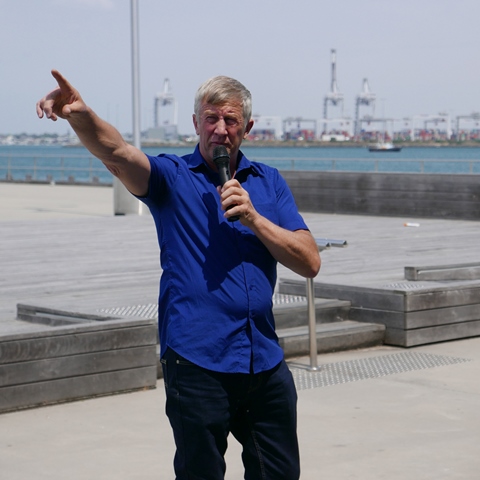
No one can tell the story of Allan Whittaker and 1928 as Kevin Bracken can. He speaks with the authority of a former Victorian secretary of the Maritime Union of Australia who has spent most of his life in Port Melbourne. Most importantly, he embodies the decency he talks about.
He wove different elements of the Whittaker story into his introduction of the guest speakers who brought different perspectives to relating the history of Whittaker and 1928 to current themes.
For Martin Foley, the member for Albert Park, it was about politics. Not just the once every four year election politics. “Politics is about organising with others about the things that matter to you, the things you are passionate about. It’s about making a difference in your community. That’s how real change happens”, he said.
Josh Burns, elected member for Macnamara earlier this year, firmly anchored his remarks in the historical importance of the place, Princes Pier, where Whittaker and his contemporaries protested against the erosion of working conditions on the waterfront. Today “insecure work with low wages is the reality for too many Australians”.
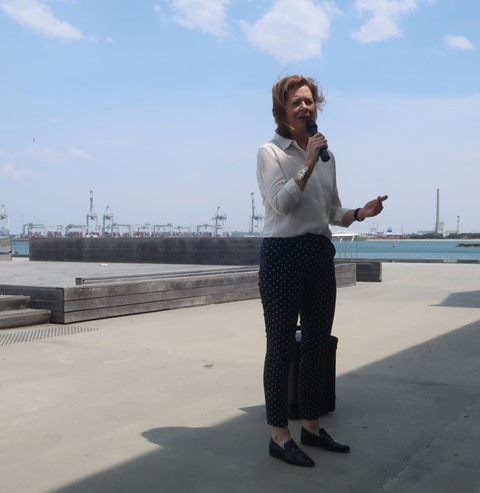
With the automated VICT terminal at Webb Dock in the background, ACTU President Michele O’Neil focused on the relevance of events on the waterfront in 1928 to today – the casualisation of work, the lack of security, the challenge to the right to organise, the right to protest. “This is our fight, this is today’s fight”, she said.
And then Kevin introduced Frank Vincent, former Supreme Court judge, who addressed his remarks principally to the Albert Park College students present:
“It must be difficult for young people to see the relevance of a time that is long past and battles that have been long ago fought but they are relevant to you and to where you stand at the moment.
I was born into Port Melbourne only about eight years after Allan Whittaker was killed. Many of my relatives were actually in the group that were standing outside these gates looking for work on that day. Several of my uncles were members of the union at that stage and work was very scarce. And they were all very poor and hungry.
My mother was just a young girl then but she was involved in these struggles because she was working with this woman, Jennie Baines. Jennie Baines was a woman who struggled for women’s rights in England – equal pay (would you believe in the 1920s?) for women and the right to vote.
When she came to live in the Port Melbourne area she organised what were called bailiff runners and my mother was one of them. And these were young people who would go around and call out the neighbours when people were being evicted and they would form human barricades around the houses to stop people being thrown onto the street.
So Whittaker is not, from my point of view, just a piece of history.
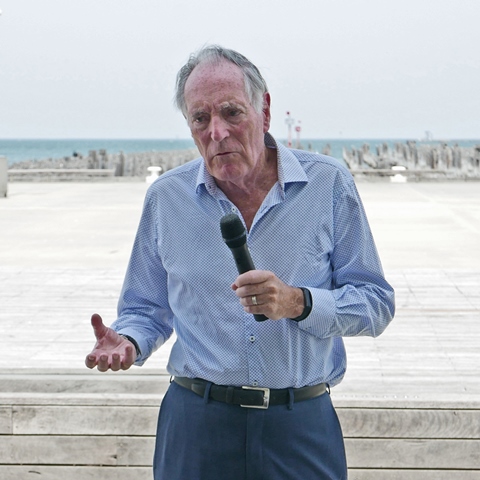
And in many ways what happened here at this time is reflected in the views that I’ve expressed and the judgments that I’ve written in the Supreme Court. You won’t find those values expressed in terms of Whittaker or the people of Port Melbourne but the notion, the underlying sense of decency and fairness and concern for human rights which was shown by those people as they stood out there hungry on that morning looking for nothing more than a job to feed their families. Those values, I like to think, have been reflected in what I have been trying to say in various judgments and various other places over the years.
And they’re relevant to you because you’re living in a changing world. Your challenges will not be the same as those that I encountered or that my generation generally encountered. They will be different but they will be no less real and the concerns which Whittaker had about securing reasonable conditions of life in order to feed himself and his family and to have a sensible and realistic basis for aspiration – they’re still there. And they’re not going to go away.
There is, unfortunately, a never ending struggle for the recognition of these rights. Every time you think that things are relatively secure – our futures and the future of our families – is secure, there will be greedy people who are concerned to try and take those protections away from us.
We know that. And we it see it again and again. We’ve observed over recent times young people being ripped off in the employment arrangements they’ve been entering into. We’ve seen it in relation to the way in which governments and others are concerned to restrict our rights and extend control with more and more intrusive and secret methods.
These are the actual lessons that emerge from those struggles in the past. We’re not here for some kind of nostalgia but I hope to recommit to the very values that were represented at that time.
I did conduct an investigation into the circumstances surrounding the death of Allan Whittaker.
He was not a well man. He walked with a limp which he had carried from his injury at Gallipoli. At the time that he was shot, he was standing at the rear of the group and was facing away because he went to try and move away when the police opened fire. As a result he was hit in the back of the neck with the bullet exiting through his face.
When he was admitted to hospital he was described as underweight and malnourished. He was a poor, hungry man. His teeth were rotten. In those days there was very little that you could do if you were a poor person in relation to dental treatment. It was not readily available.
So of course when his face was injured in this way he developed septicaemia which they could not control at that time and he died painfully after a period of three months.
That is the story of Whittaker.
A very ordinary story. In fact the power of the story comes from his ordinariness. We would never have known about him apart from the fact that he was killed in those circumstances. But he could have been any one of those people in that group demonstrating that day. Three others were only wounded – only wounded! But they were out there trying to do nothing more than secure food and lodging for their families.
We’ve done quite a bit better. But don’t ever fall under the illusion that these gains are not reversible because we do see them being reversed at the present time.”
Sticking together. That’s what made Port people strong, Kevin reminded us.
Students from Albert Park College closed the event with a poem tribute to Allan Whittaker after which people cast flowers into the sea. It was 340.
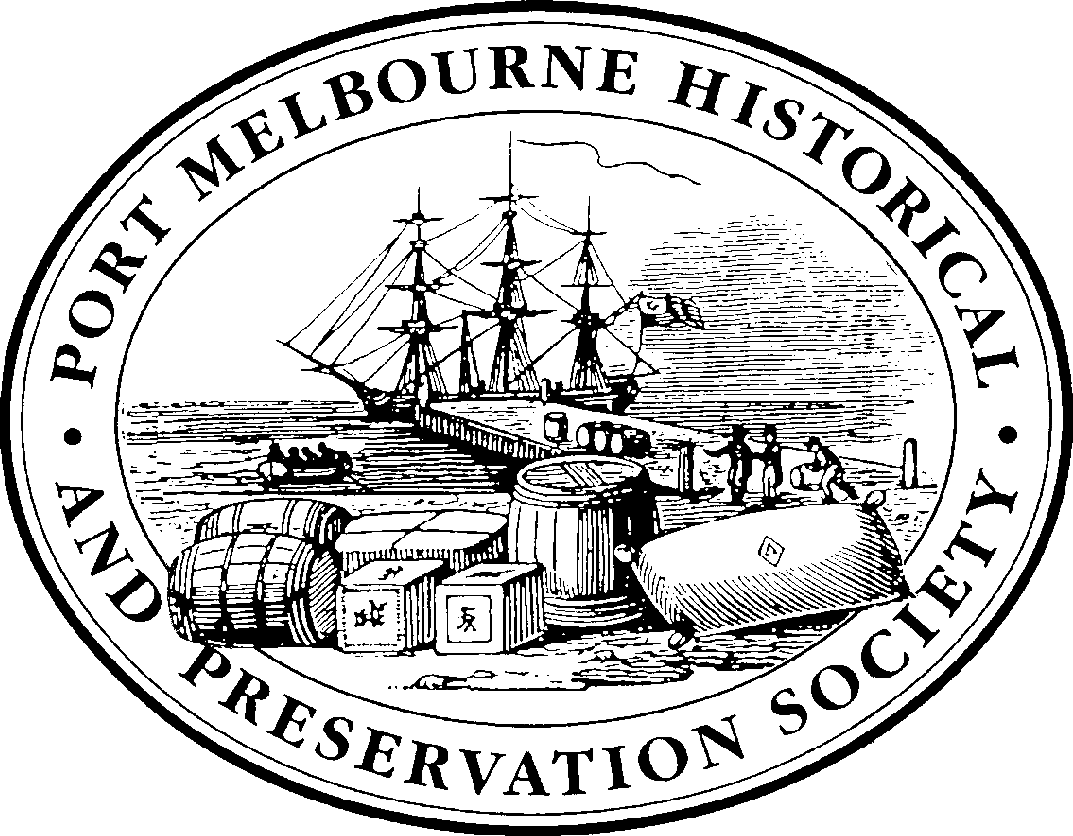
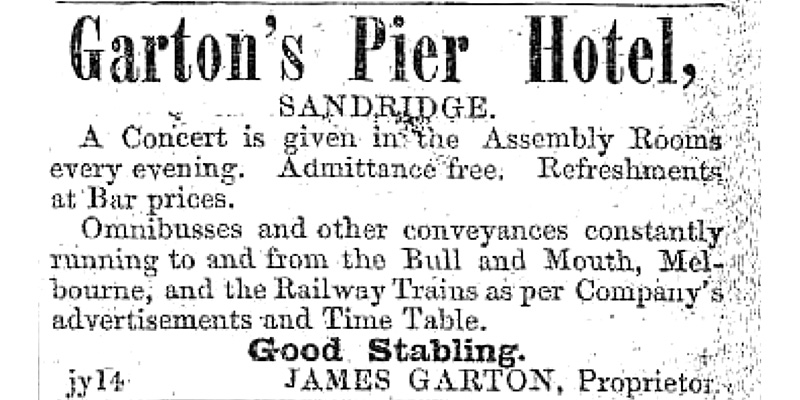
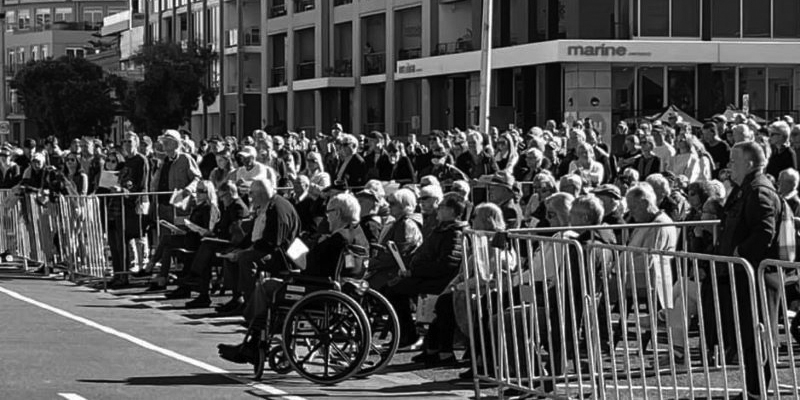
2 Comments
Colin Johnson
Frank, I found your speech very informative on how things really were at that time and that history will always repeat itself, what you spoke of your Mother my Aunty I never knew and makes one feel very proud of being born in Port Melbourne.
Janet Bolitho
Thanks Colin – I will pass your comments on to Frank.